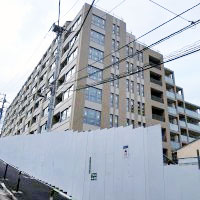Overnight accommodation laws relaxed in Fukuoka City, but for limited times only
To alleviate the strain on hotels in Fukuoka City, the mayor announced on December 8 that the hotel letting laws would be temporarily relaxed to allow private residences and apartments to be leased out to guests.
As a trial run, the license-free* letting period will be limited to just five days this month when Japanese pop bands Arashi and Exile are scheduled to hold concerts in the city.
On December 17 ~ 19 and 26 ~ 27, homeowners will be permitted to rent out rooms in their homes, while landlords, or tenants with the express permission of their landlords, will be permitted to lease out empty rooms to overnight guests.Read more
Contractor cites Edo-period land claim in lake landfill dispute

A construction contractor in Matsue City, Shimane Prefecture, is citing a 200-year old claim to surface rights of Lake Shinji after the government has accused him of illegal legal reclamation. Since 1997, the national government has issued 35 infringement notices to the contractor, ordering him to cease his land reclamation work and return the site to its original condition.Read more
Government may lift ban on AirBnb-type rentals
The Ministry of Health, Labour and Welfare, and the Ministry of Land, Infrastructure, Transport and Tourism are considering removing the ban on letting out private apartments and homes to tourists starting as early as next year.
Under the current Hotel Business Law, anyone wanting to provide accommodation for stays of less than 30 days must obtain a hotel license. Properties must meet strict requirements, including zoning, structural codes, safety and hygiene practices. Renting out a room on AirBnb to someone for less than 30 days is essentially illegal without the appropriate license.
The recent influx in foreign tourists, a shortage of hotel rooms, and a growing number of incidents with illegal hotels and AirBnb hosts has caused the government to consider introducing some urgent changes to legislation.Read more
Condo manager accused of 1.1 billion Yen embezzlement

The former chairperson of the owner’s association of a ski resort condominium in Niigata has been accused of allegedly embezzling 1.178 billion Yen (9.6 million USD) from the apartment building’s management and repair fund over the span of sixteen years.
The owner’s association filed a criminal complaint in an attempt to recover the 400 million Yen which falls within the statute of limitations. The former chairman allegedly falsified bank statements after transferring the funds to his personal bank account to purchase shares and make other personal investments. Read more
Condominium in Tokyo has construction permit revoked just prior to completion
 A 8-storey condominium in Bunkyo-ku, Tokyo, has had its construction certificate revoked due to having inadequate emergency stairs. The building was less than 2 months away away from completion and the 100+ apartments had already been sold to buyers off-the-plan.
A 8-storey condominium in Bunkyo-ku, Tokyo, has had its construction certificate revoked due to having inadequate emergency stairs. The building was less than 2 months away away from completion and the 100+ apartments had already been sold to buyers off-the-plan.
To further complicate things for the developer, local building height limits have since been reduced which means that even if the developer corrects the evacuation exits, the top two floors of the building may need to be removed in order to obtain a new building permit. Height limits in this neighbourhood were reduced from 27 meters to 22 meters in 2014.Read more
Two arrested under suspicion of illegally leasing apartments to foreign tourists

On November 5, the Kyoto Prefectural Police began interviewing two people who are suspected of allegedly leasing out apartments to foreign tourists for short stays without obtaining the appropriate hotel license.
The two suspects are are 52-year old advisor from a travel company in Tokyo and a 48-year old from a hotel proxy company in Yamagata City.
Both companies have been accused of renting out apartments in Kyoto’s Ukyo-ku to tourists on a short-term basis without a license which is in violation of the Hotel Business Law. As many as 300 guests used the accommodation between July and early October.Read more
Ota-ku may relax short-term accommodation regulations
Tokyo’s Ota Ward has announced plans to relax accommodation regulations in order to provide accommodation for the growing number of foreign tourists in the lead up to the 2020 Tokyo Olympics. It is expected that the new rules may go into effect by the end of this year.
Hotels in Ota Ward are currently operating with occupancy rates of over 90%, and there are concerns of a shortage in accommodation options for visitors.Read more
